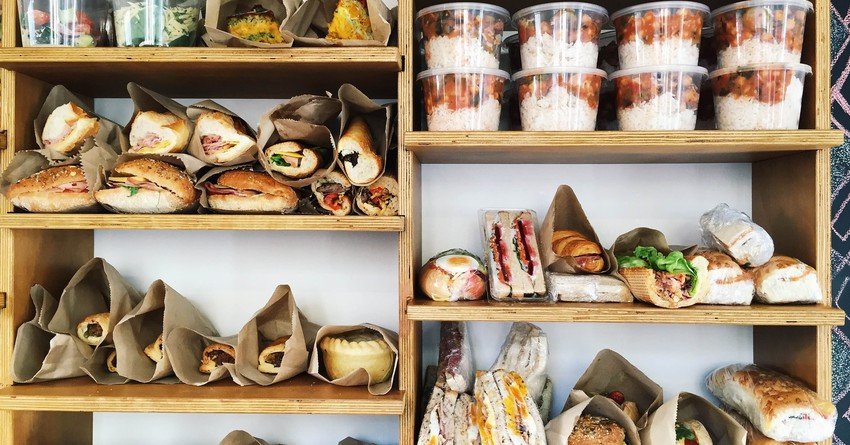No money, no problems: Wellington good sorts embrace the retail model (sort of) to help those in need

The Free Store operates like a shop, but with one major difference: it doesn’t take any money and simply hands out food to those who need it.
In mid-2010, artist Kim Paton fitted out a small retail space in the CBD and stocked the shelves with food, but this was no ordinary food store. The items on the shelves could be taken by anyone with no charge. And The Free Store was born.

Founder and director Benjamin Johnson visited the installation and found the experience of not paying in a retail environment a challenge.
“It was weird and awkward, I really wanted to pay for the chocolate and pasta I took from the shelf.”
Some of the food was supplied by local cafes who had a surplus, and Johnson started thinking about expanding Paton’s idea into a permanent venture. He wanted to tap into the network of hospitality establishments Wellington is famous for, and redistribute their perfectly edible unwanted food to people who needed it. The Free Store now operates on weeknights between 6pm and 7pm out of a repurposed shipping container in Willis St.
 The store fills a niche – it redistributes small amounts of food from a large number of suppliers. A couple of the suppliers contribute a considerable amount of food, but on average The Free Store collects 10 items of food from each supplier a day.
The store fills a niche – it redistributes small amounts of food from a large number of suppliers. A couple of the suppliers contribute a considerable amount of food, but on average The Free Store collects 10 items of food from each supplier a day.
“Any one café may feel their surplus is minimal and insignificant, but when it’s combined with surplus from 50 other establishments, it becomes significant.”
More than 100,000 items of food are redistributed in the shipping container annually. The Free Store also makes sure there is no burden of effort for any of their suppliers. Volunteers arrive at the cafes at a prearranged time and simply take the food away.
And there is no criteria for the customers, anyone can come and get food if they are in need. The Free Store serves people from all walks of life. Some are homeless, unemployed, or struggling; others are students, elderly or refugees.
At the moment, it is serving about 80 people per night. But Johnson says there is room for growth as the numbers of customers is growing. The Free Store has found an equilibrium of supply and demand, and has never wasted any of the food given to them. Johnson says using a retail model to distribute charity goods is a deliberate move.
“I like to run The Free Store like a simple hospitality business because it makes management easier and also ensures we maintain strong, trustworthy relationships with our suppliers.
“We know they have their daily rhythms so our daily rhythm must be complementary and just as impeccably consistent.”
The Free Store tries to steer clear of being called a charity, and places emphasis on helping people with dignity.
“We provide a normal retail environment where cost isn’t inhibitive to participation,” he says. “I like to think we’re just another café in Wellington.”
 One of the committed volunteers: Patrick.
One of the committed volunteers: Patrick.
The Free Store began in Wellington, but the idea has since spread to Palmerston North under the name Just Zilch. Johnson has also had interest from people around New Zealand and in Australia about how to set up similar stores. It is not a centralised institution, but rather a collection of community-owned initiatives. He also launched a pop-up store (part of the Street Store events) that gave clothes to those in need.
Johnson says The Free Store is about more than just meeting immediate food needs. It is a way of bringing different walks of life together to share a community.
“The Free Store exists to model a small-scale type of generosity, inclusion, participation and resourcefulness we hope to see throughout our communities and nation.”
- This story originally appeared on The Register.


 One of the committed volunteers: Patrick.
One of the committed volunteers: Patrick. 

